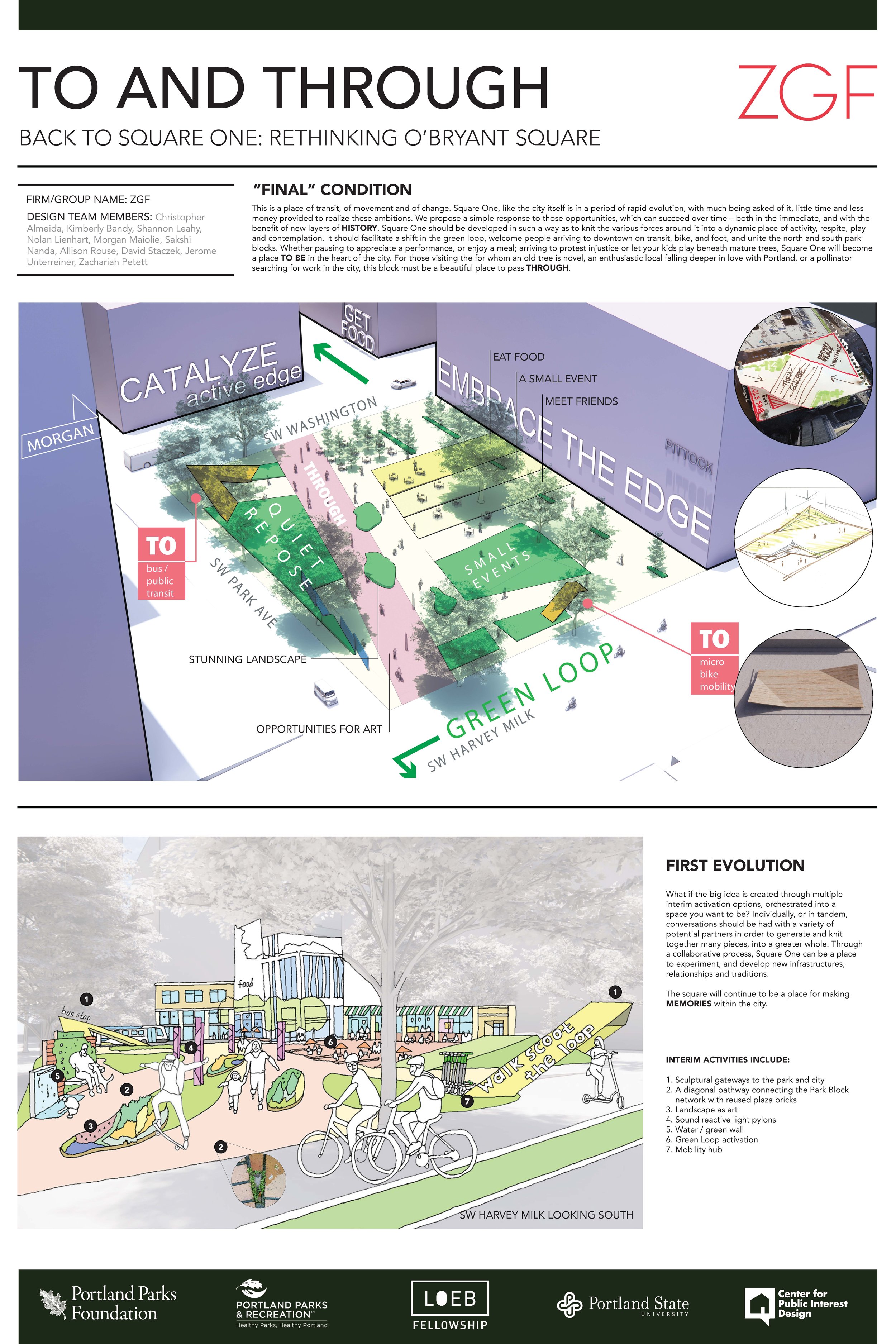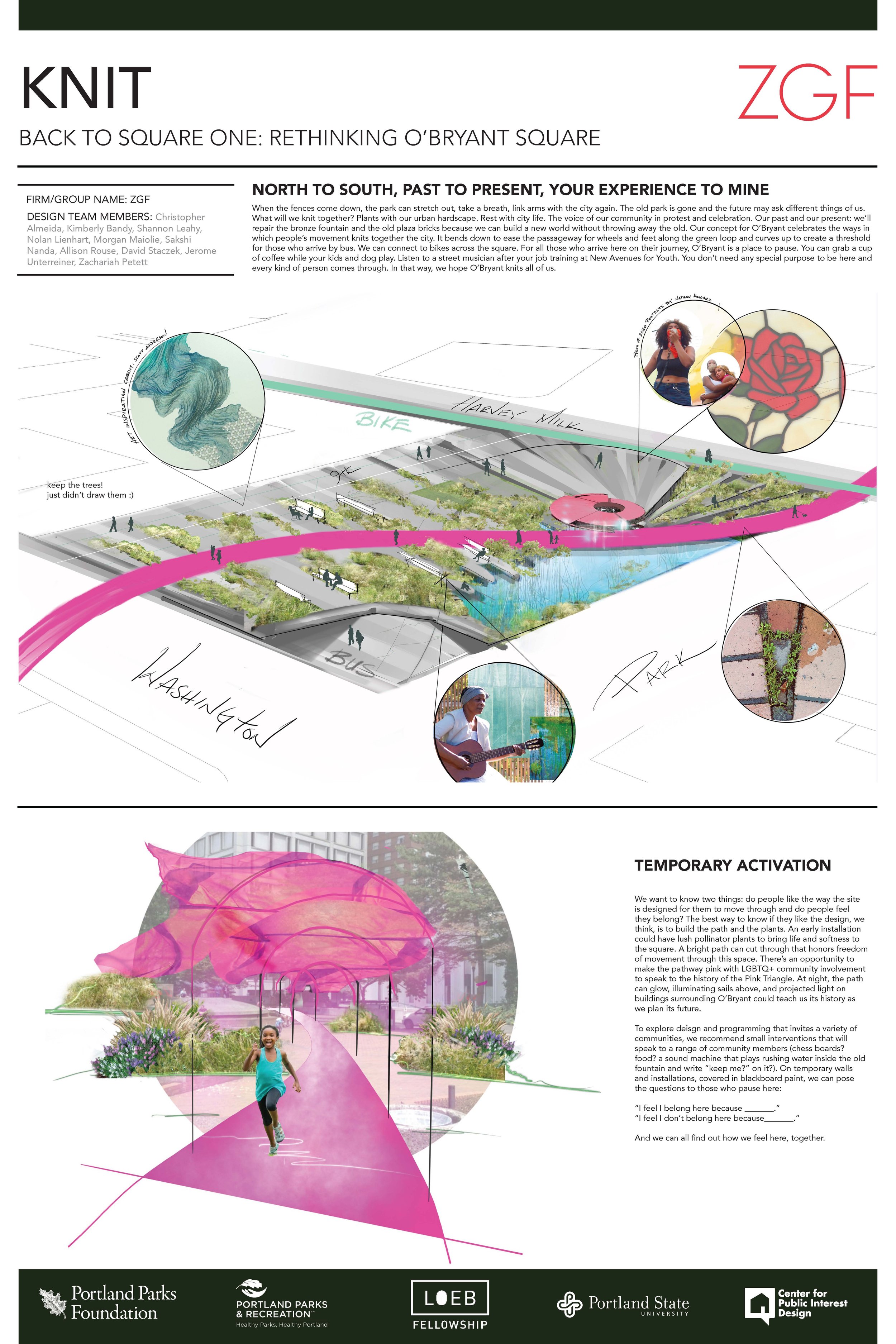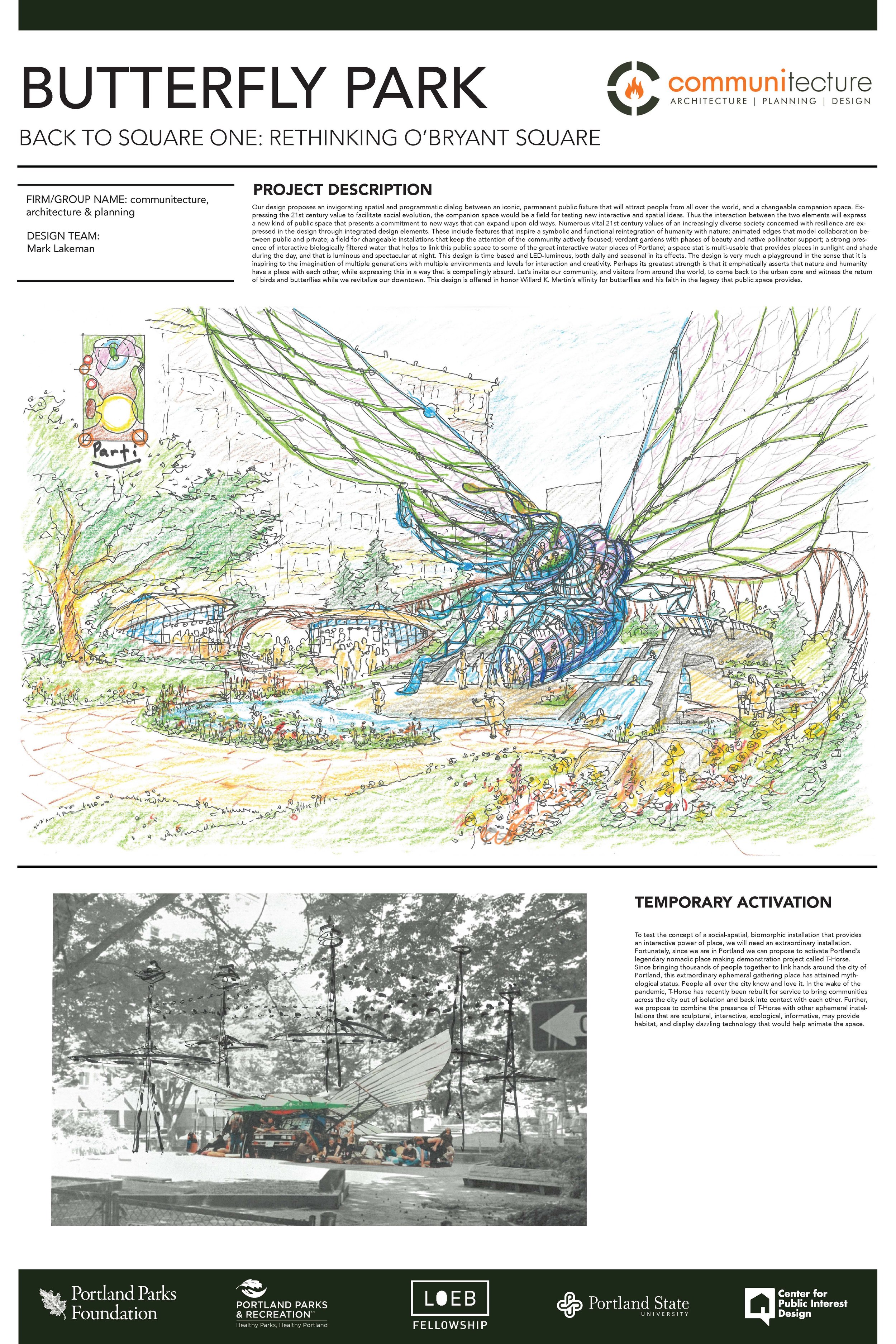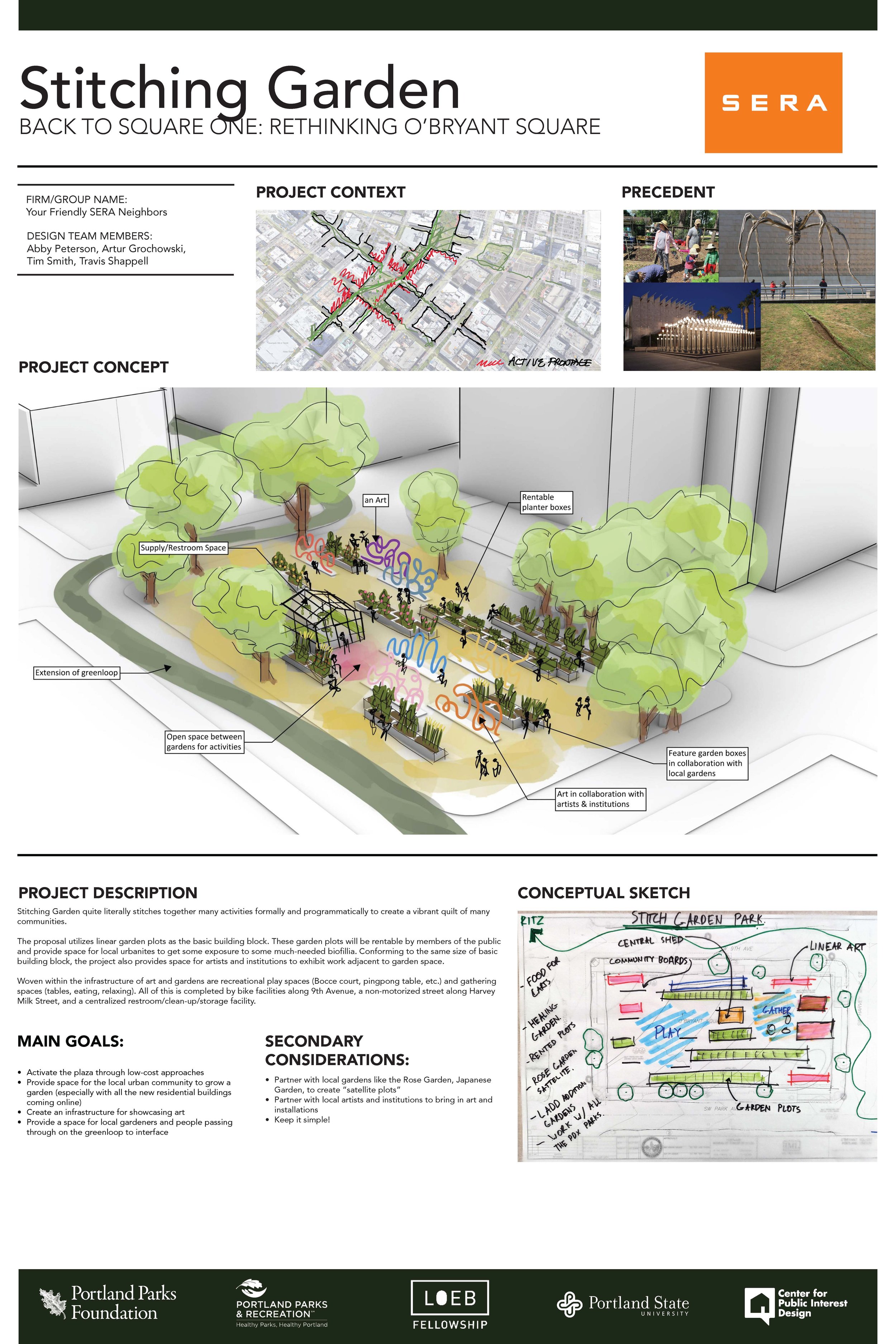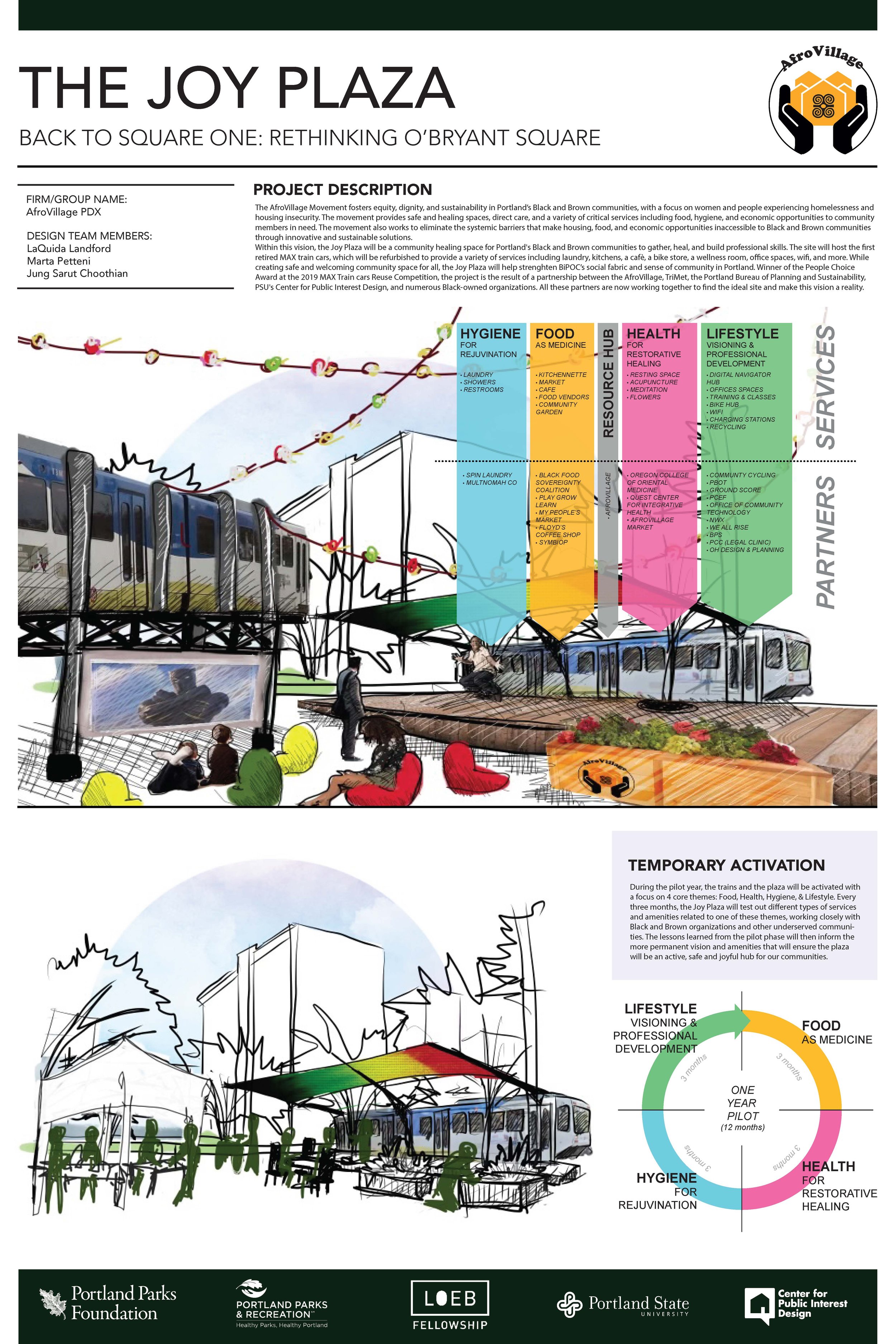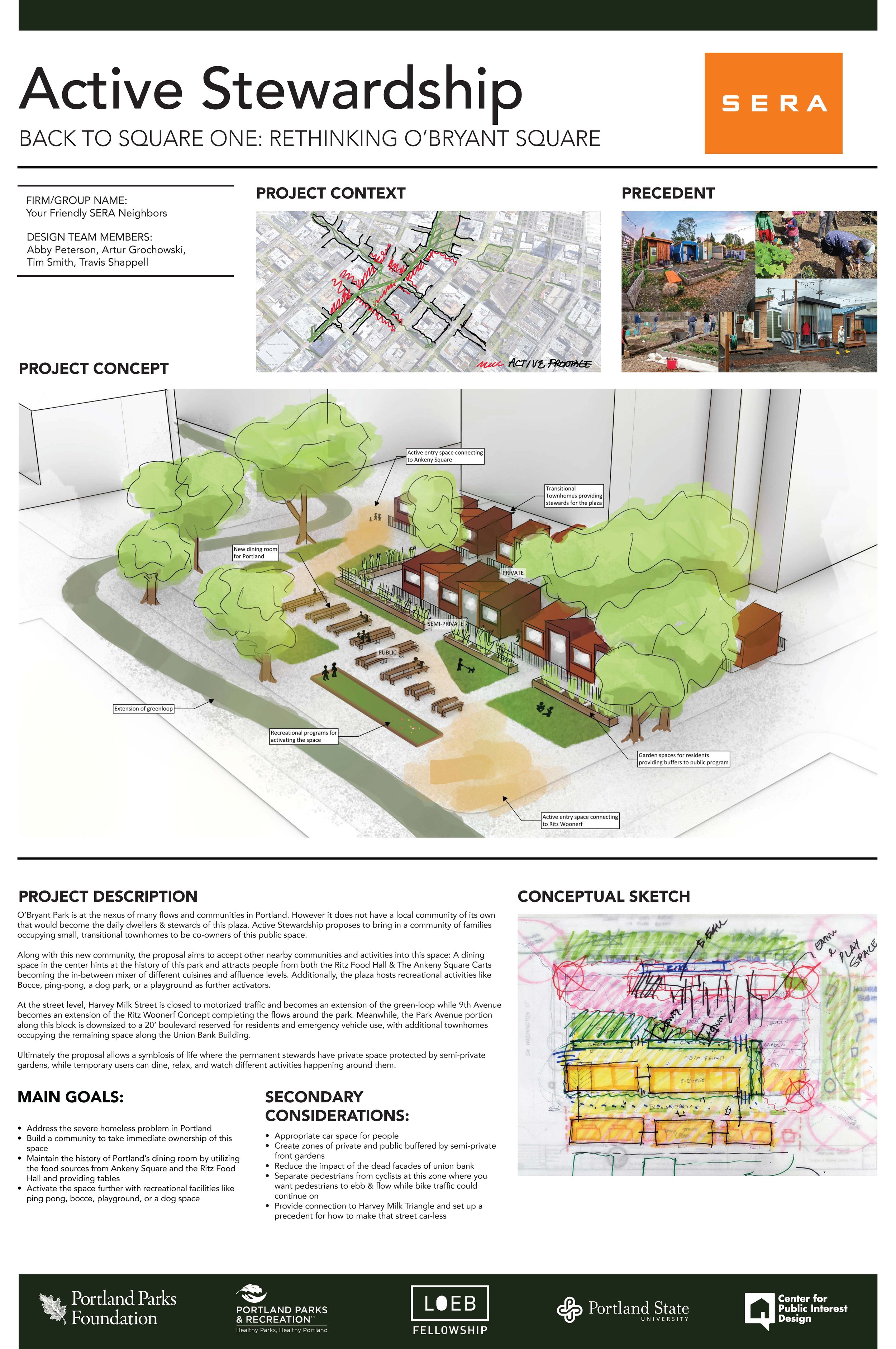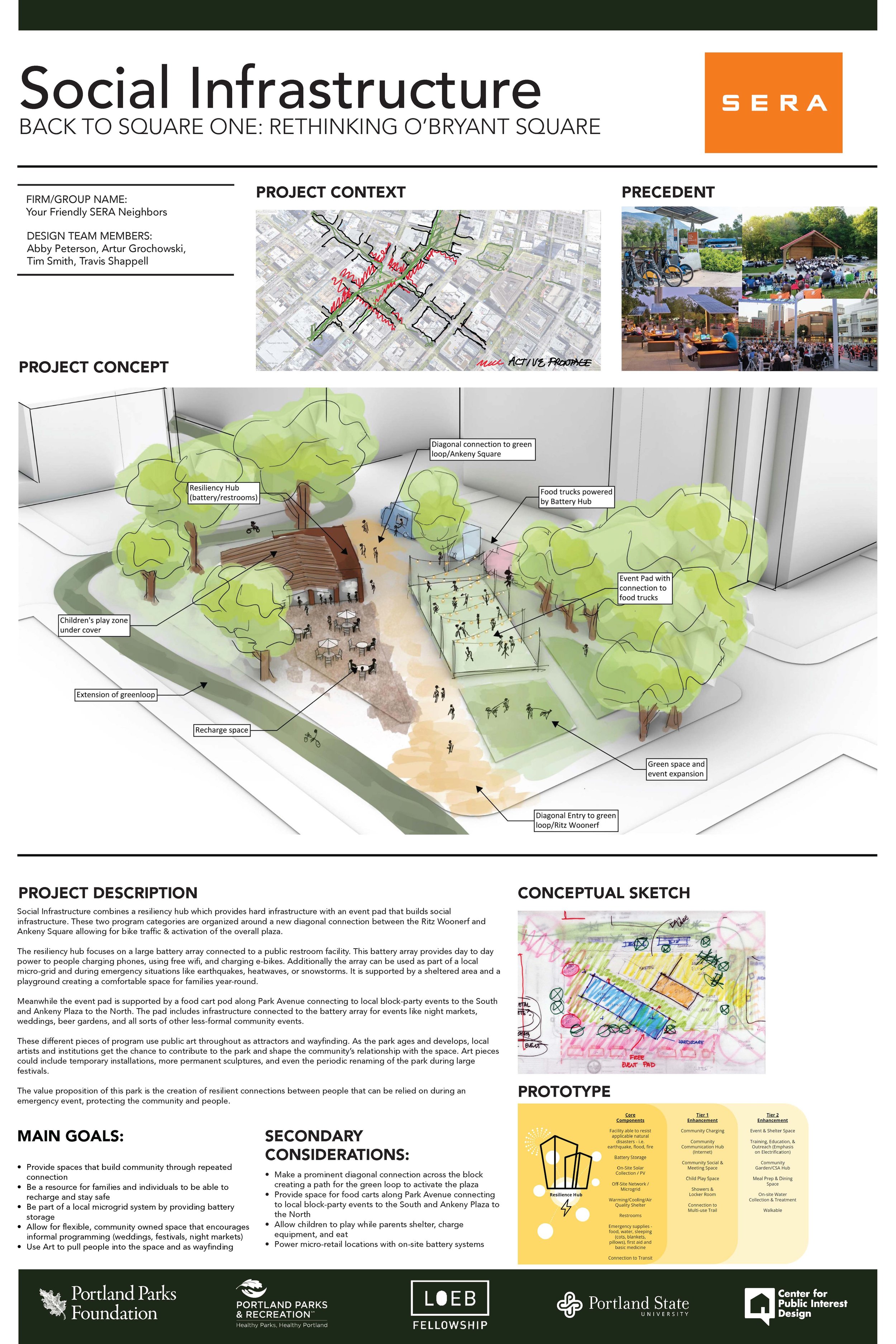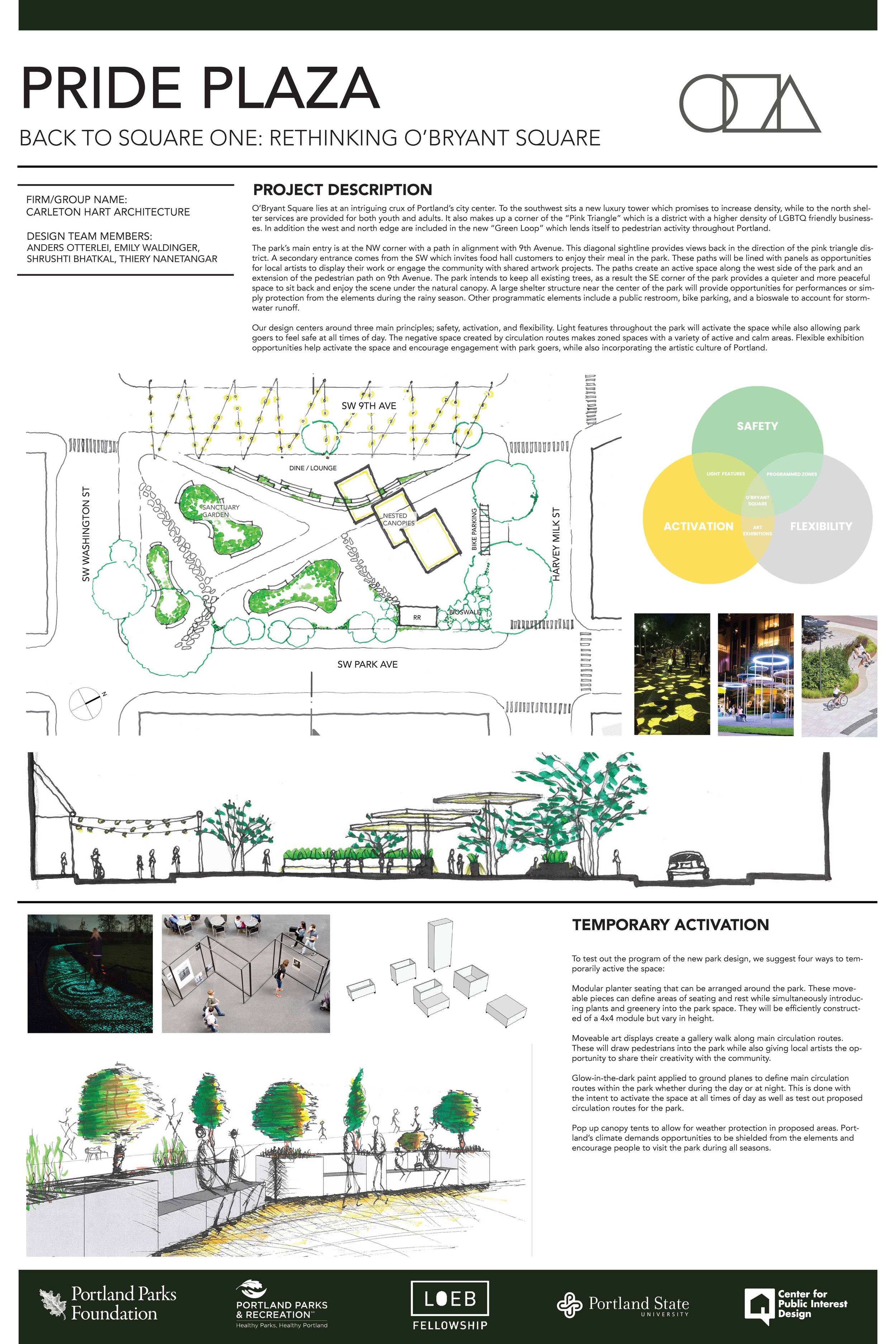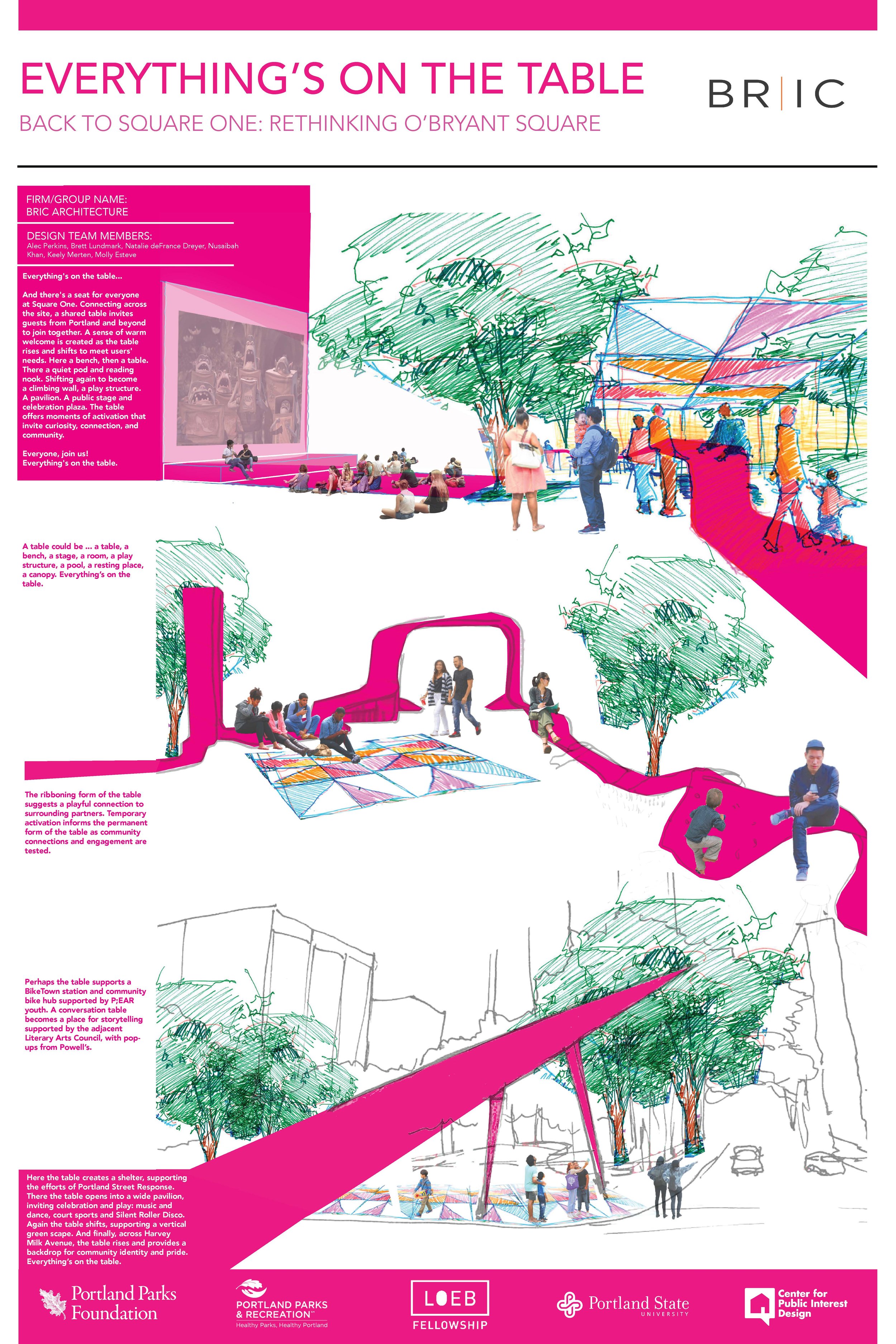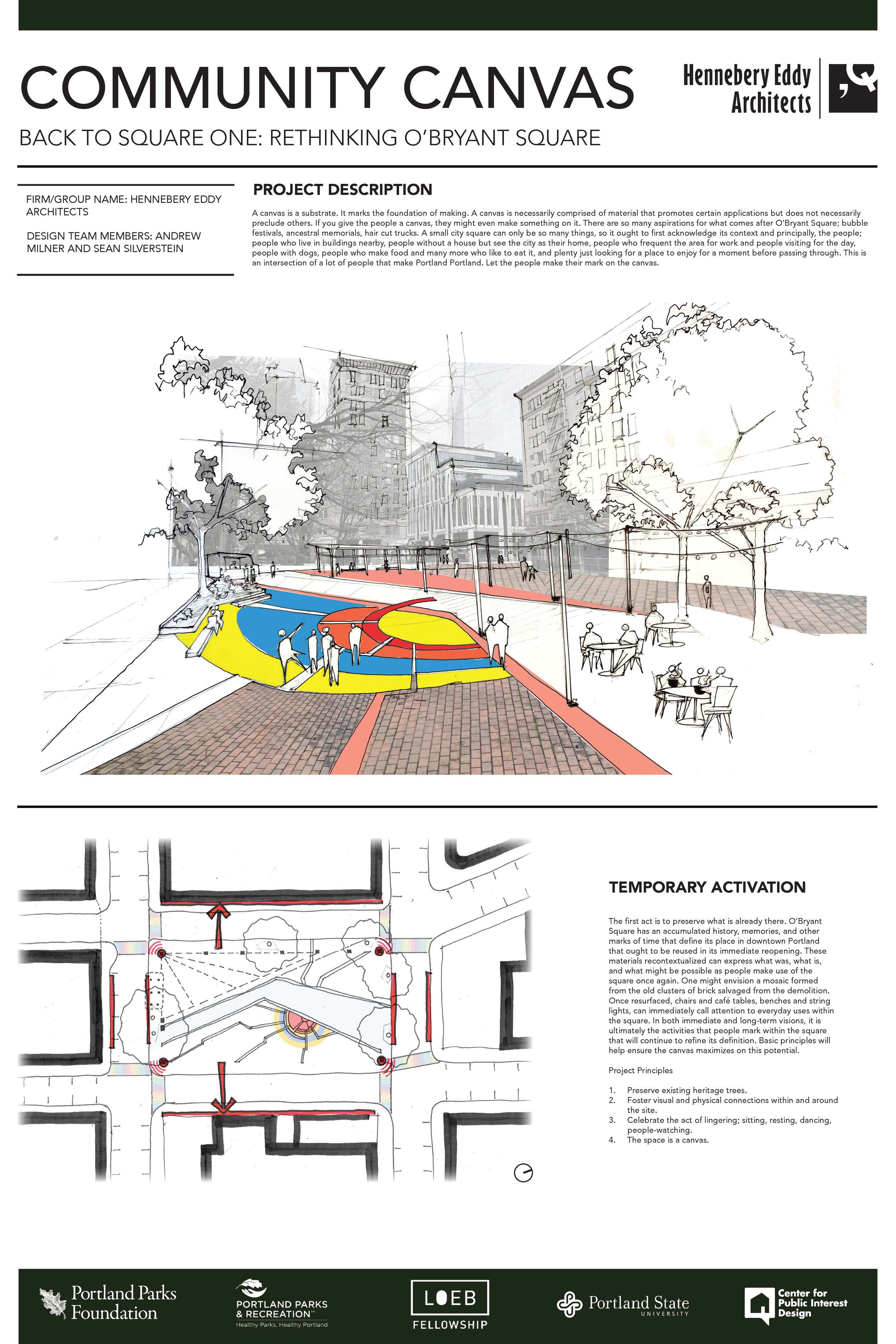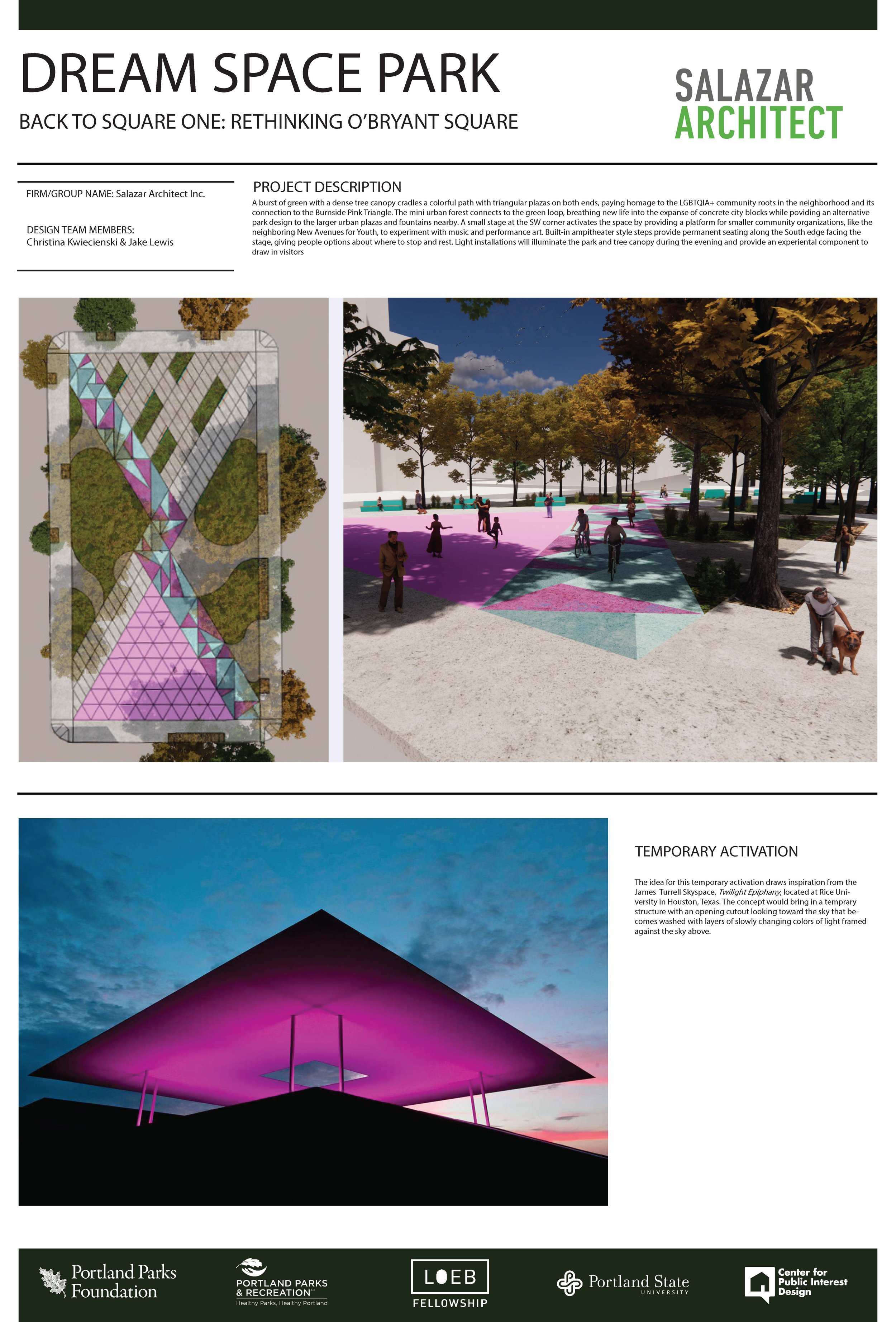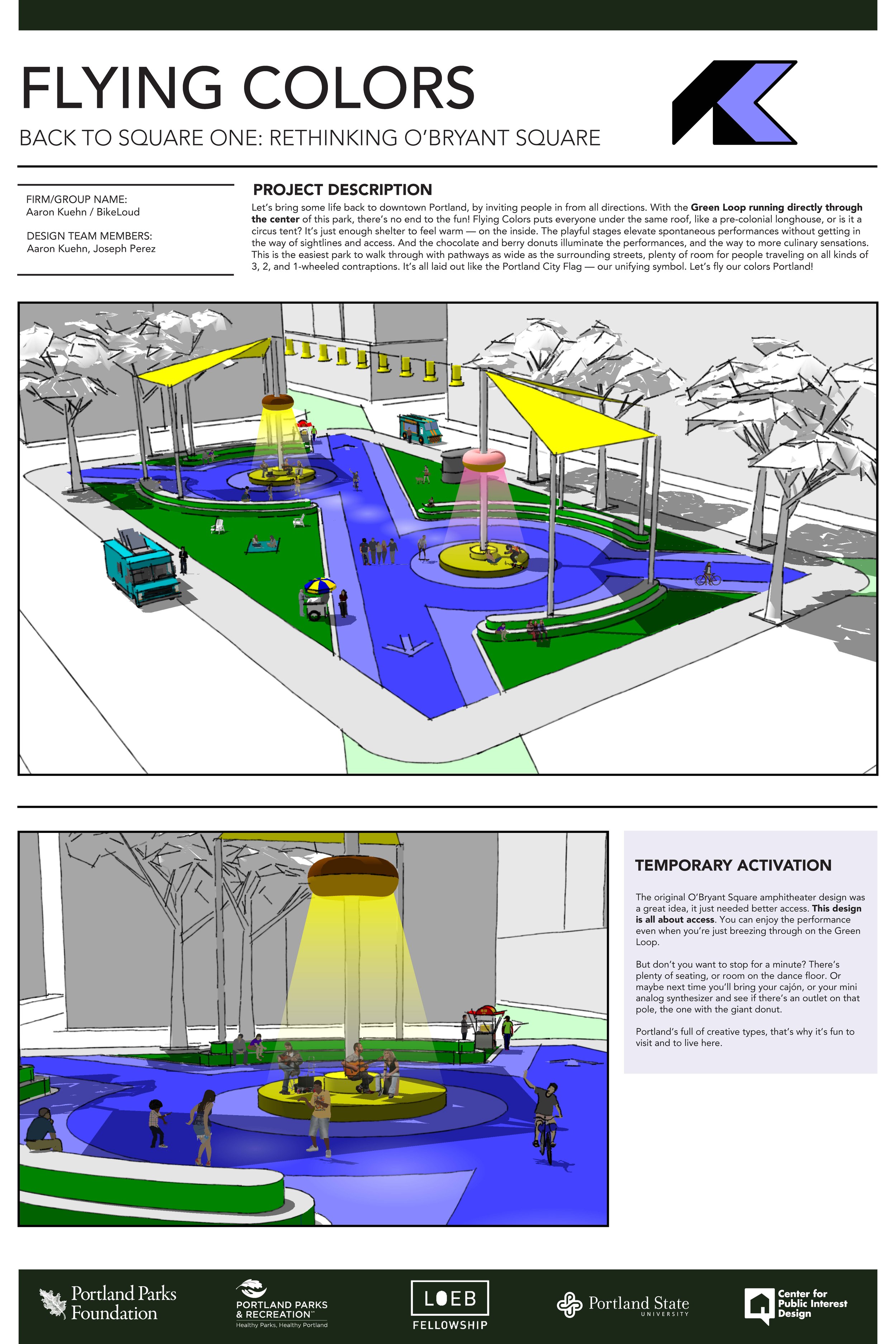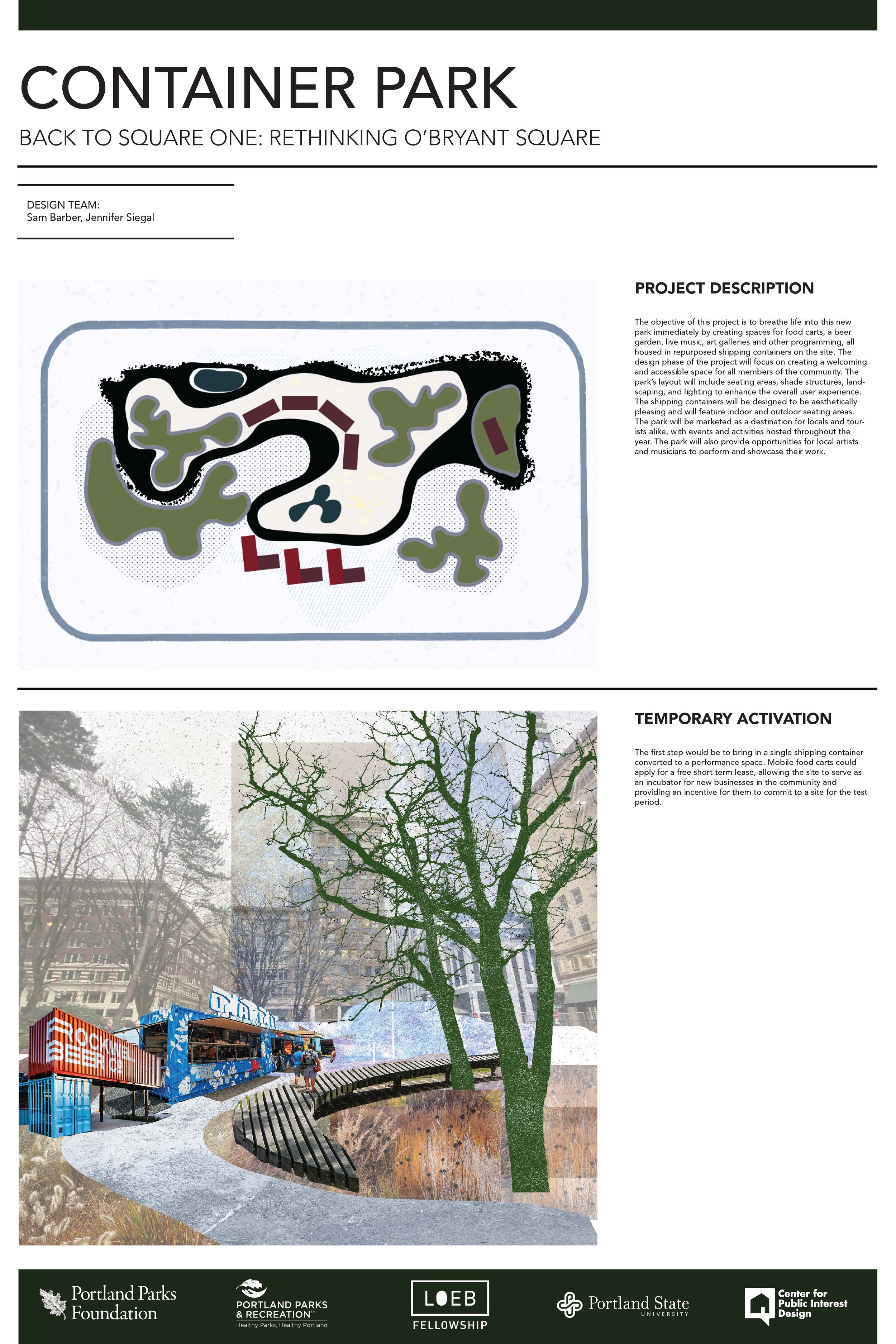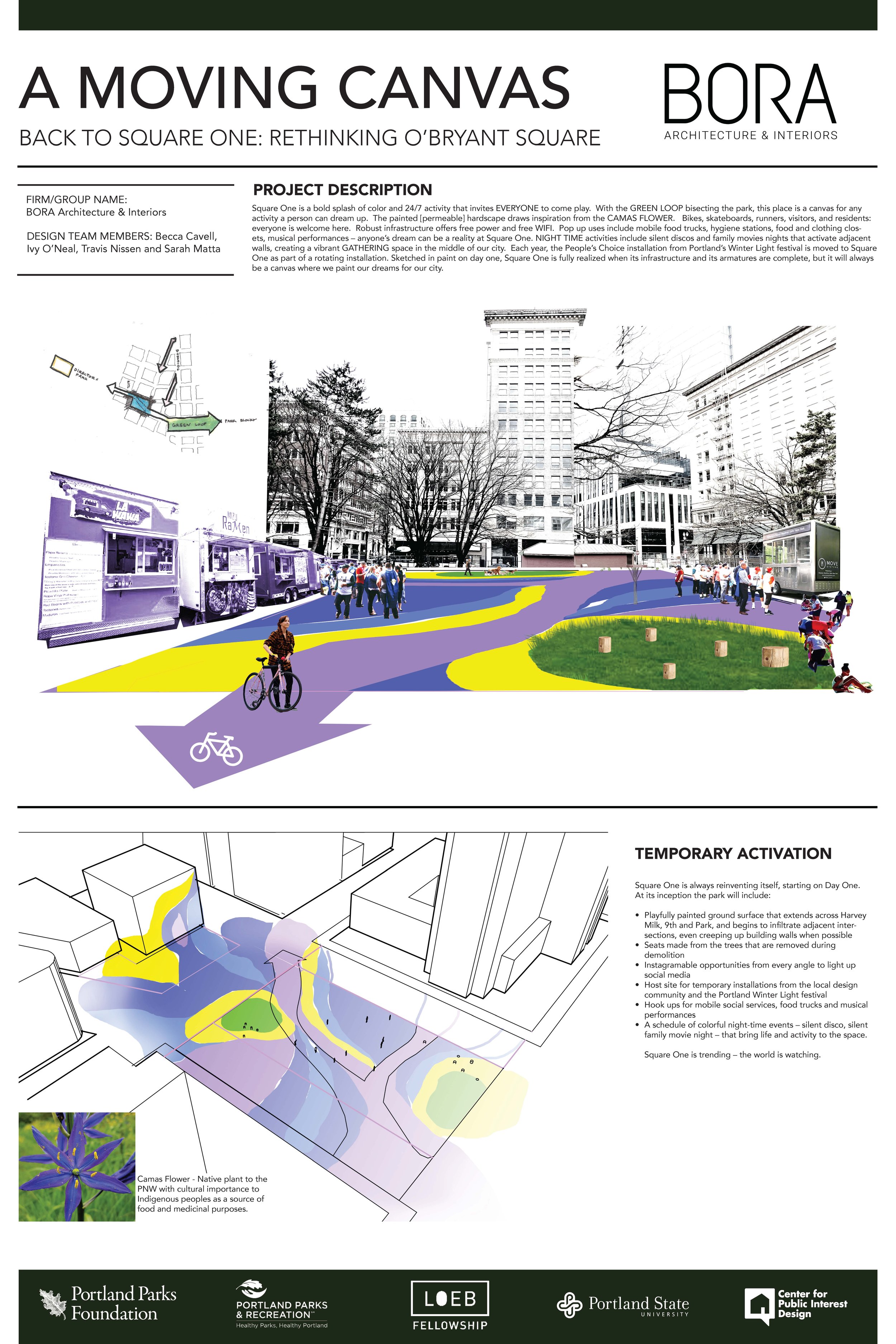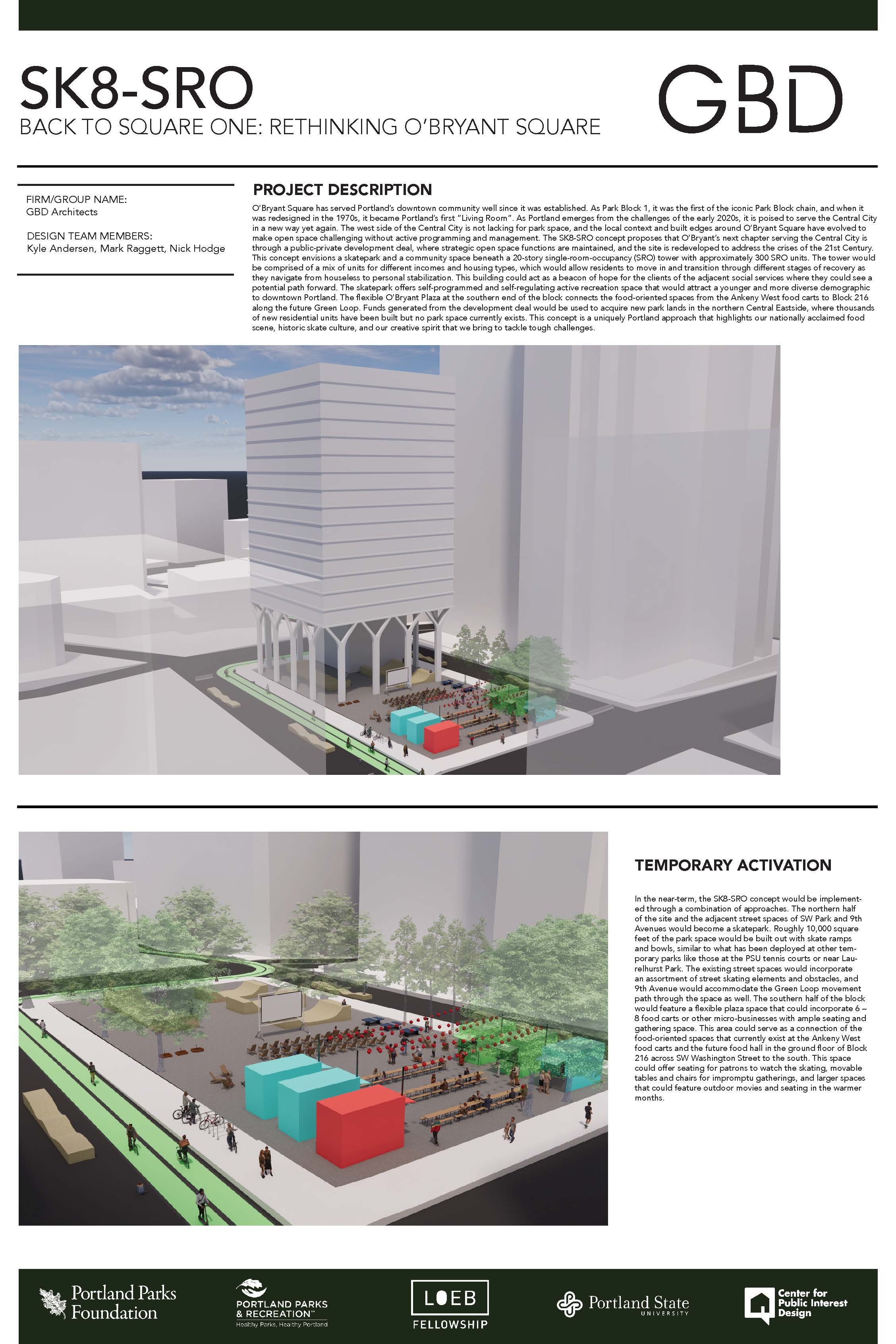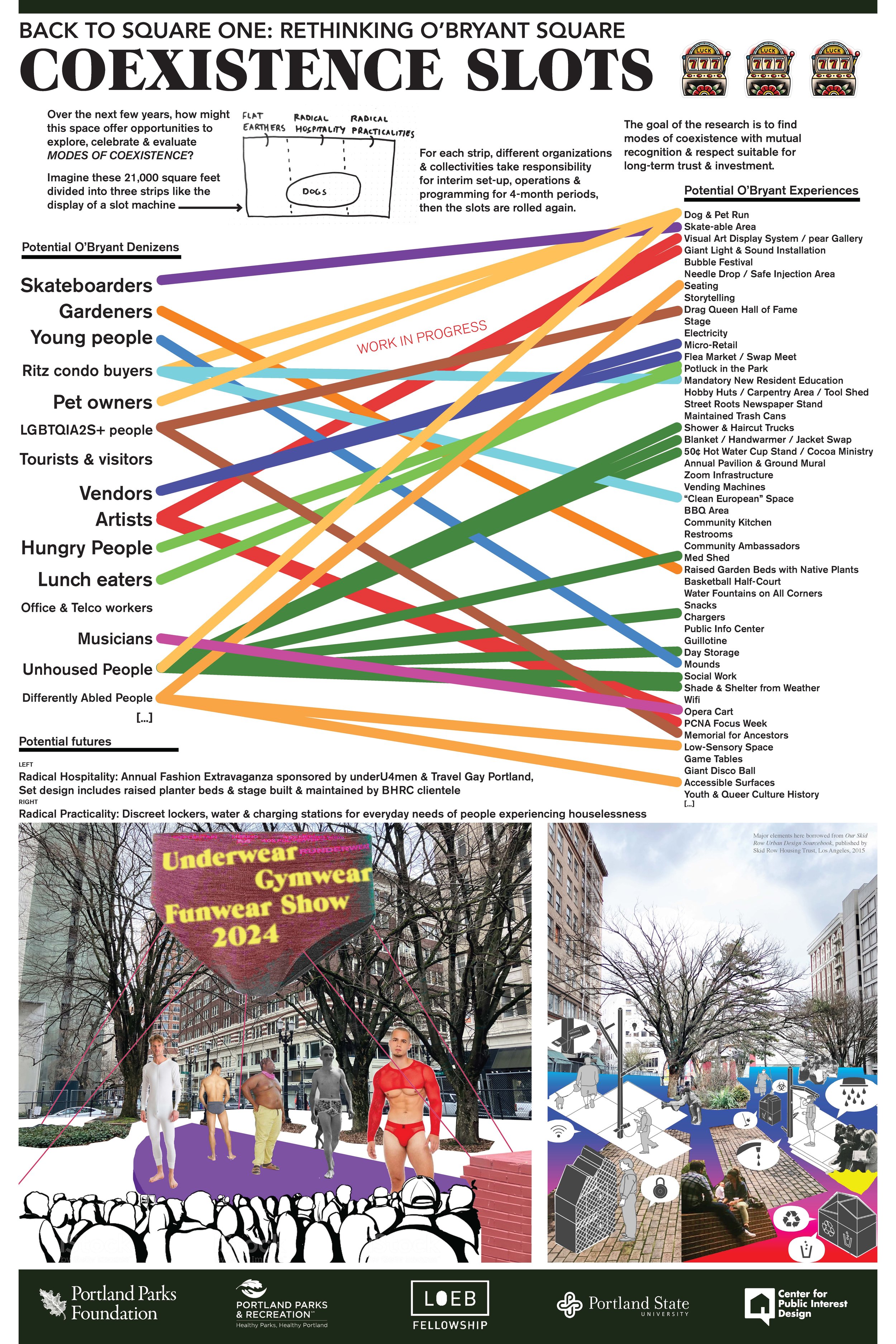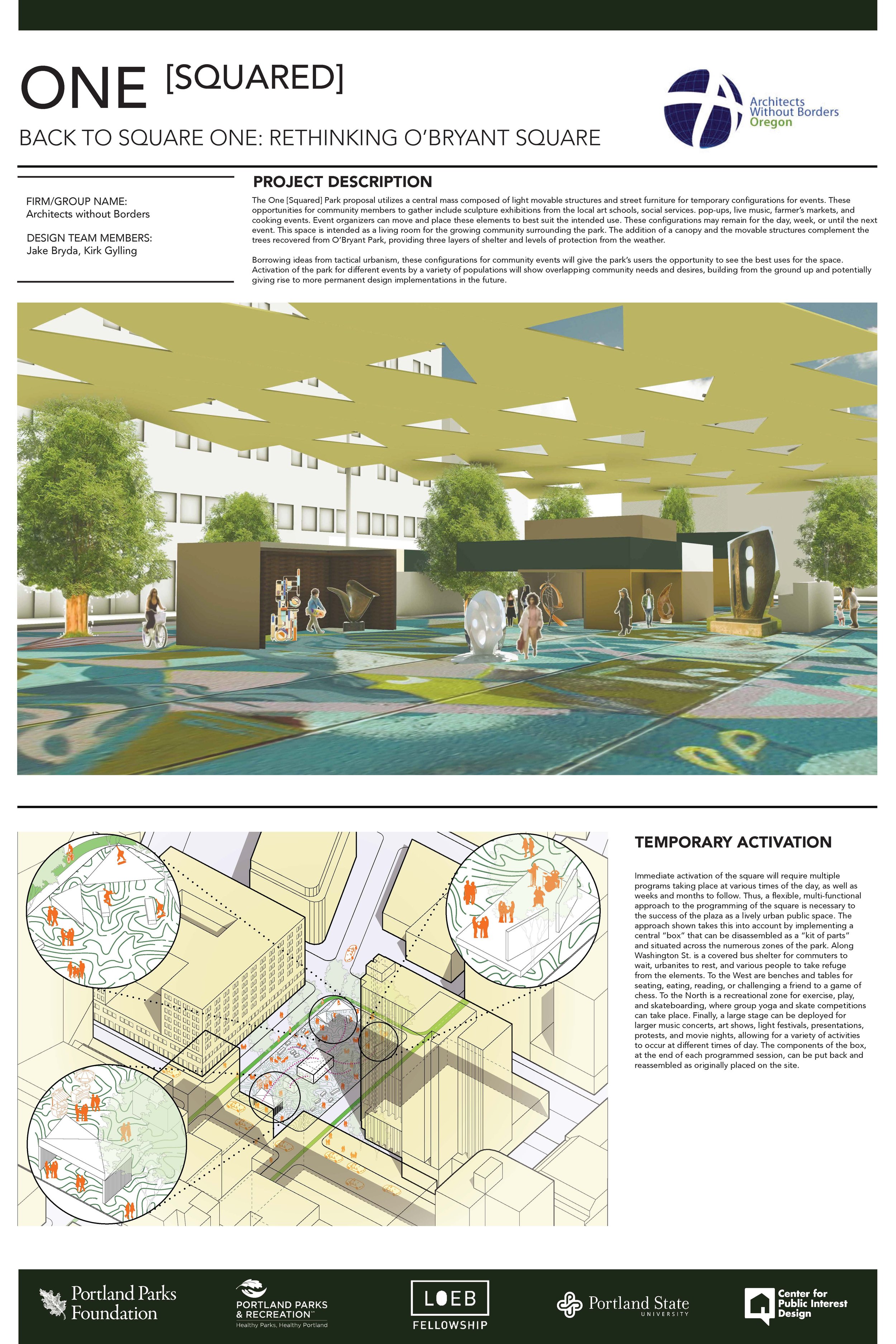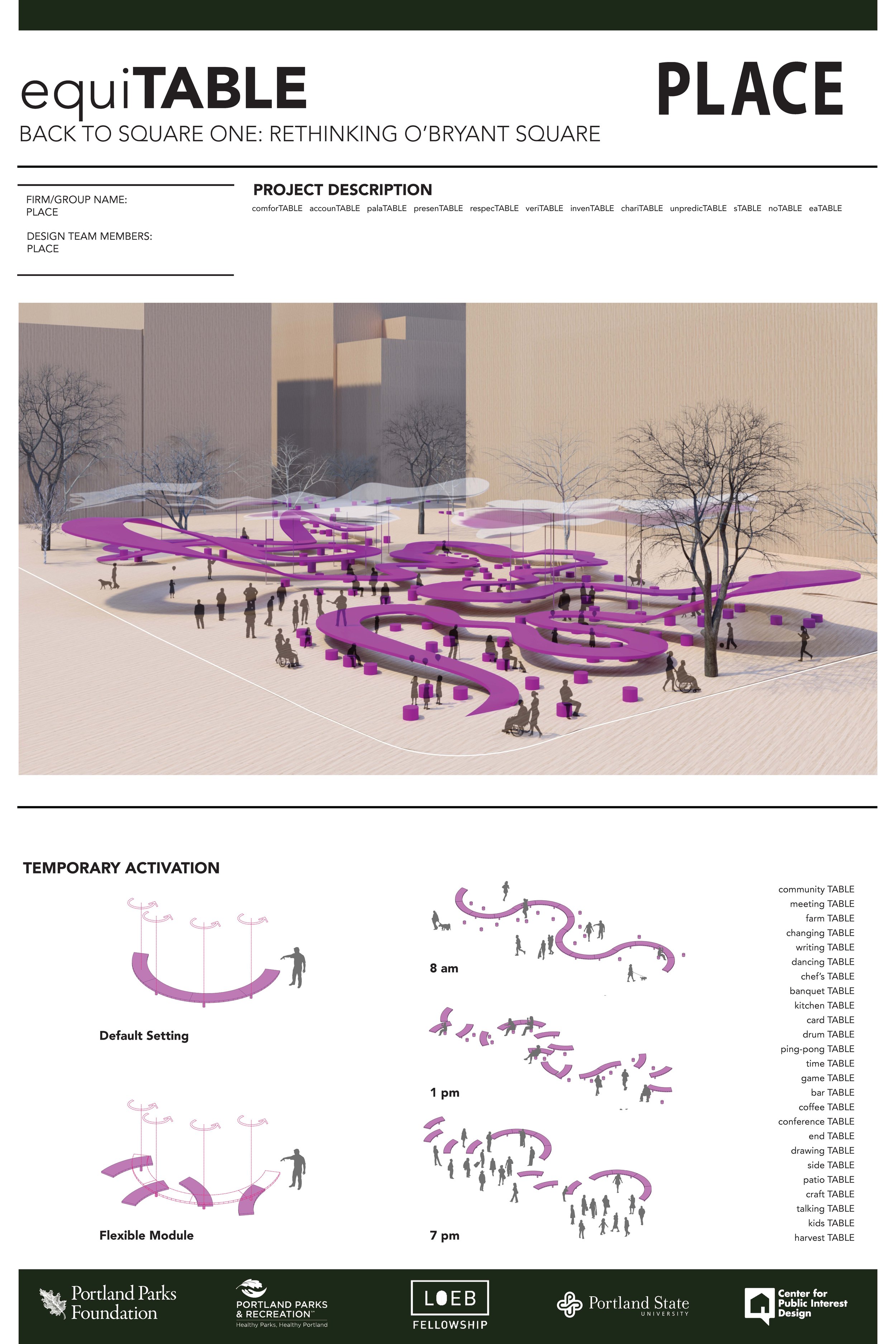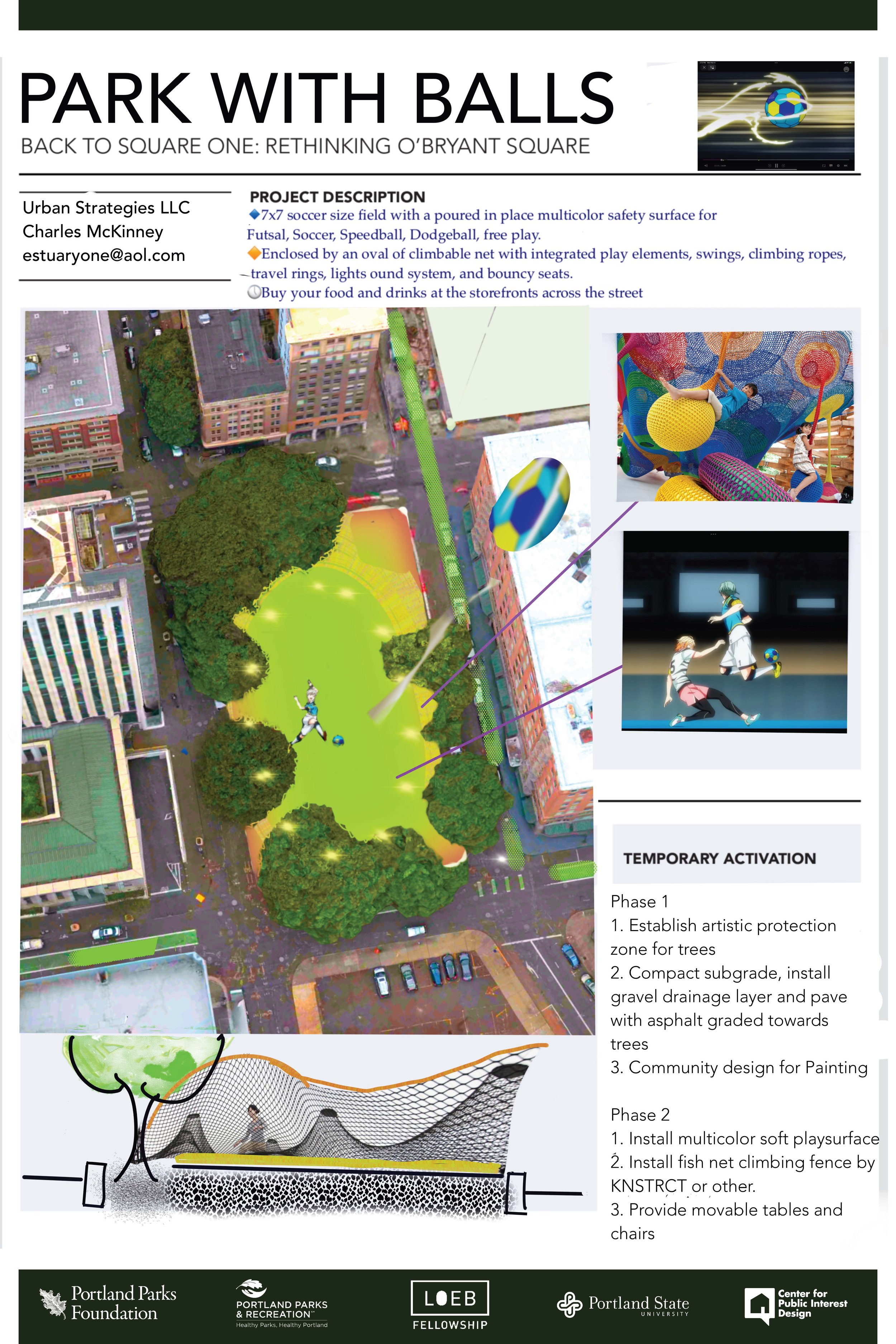Back to Square One: Reimagining O’Bryant Square
In 2022, the Center for Public Interest Design began working with the Portland Parks Foundation on an effort to reimagine O’Bryant Square and the future of urban public space in Portland. The current O’Bryant Square is slated for demolition and will be left “park ready” in the fall of 2023, but with no current funding mechanism to build a future park. The CPID and PPF see this as an opportunity to imagine aspirational visions for how we might rethink the use of this significant site and program it through temporary (pop-up) activations. The overall goal is twofold: Envision simple, fast-track “draft” design and programming to bring O’Bryant Square to life as soon as the demolition fences come down; and let what works (and doesn’t) shape the future permanent design when funding to build a new park is identified. An intensive community visioning process facilitated by the Center for Public Interest Design, visiting Harvard Loeb Fellows, and the Portland Parks Foundation took place March 7-11, 2023, as a means to launch this initiative.
Outreach initiatives to date have included a public survey with close to 400 responses, two community open houses with opportunities for idea generation and feedback, 6 webinars about the park with Q & A and chat features, and a charrette with local design professionals. Additionally, the coalition convened a series of discussions with 8 key stakeholder groups from the following categories: Arts & Culture, Property Owners, Downtown Youth, Retail / Food / Hospitality, Service Providers, Safety / Management / Maintenance, Behavioral Health Resource Center Clients, and Downtown Residents.
Common themes emerged throughout all of these conversations. O’Bryant Square holds a great deal of significance to many Portlanders due to its history as a hub of subculture activity including hosting the LGBTQ+ events, being a longtime draw for youth and skateboarders, and serving as a lunch spot for the Alder Street food cart pod. Its current significance for many also stems from the fact that the challenges and tensions facing the site are emblematic of the larger issues facing downtown Portland and may serve as a test case for how the city might be revitalized. A majority of conversations and feedback reflected a longing for a Portland of the past, cautious optimism and enthusiasm for aspirational ideas for the park site, and an emphasis on centering safety as a key challenge and consideration with any interventions on the site. There is an obstacle of a chicken and egg scenario to overcome regarding safety at the site in which programmed activations on the park will support feelings of the park being safe, while skeptics worry that the park and surrounding neighborhood need to be made more safe in order for the activations to be successful. Dilemmas such as these support the argument that the City should embrace this opportunity to test things on the park through temporary interventions that can lead to much more successful permanent infrastructure at O’Bryant Square.
In spite of its challenges, there is a lot of reason for hope at O’Bryant Square. There is an emerging coalition of people representing a wide cross-section of stakeholders that are eager to support efforts toward the park’s success. Between all of the different engagement efforts, well over a thousand people have been meaningfully engaged in conversation around what should happen at O’Bryant Square. There were surprising alignments in desires for the future park from even the most disparate stakeholder groups, with feedback from Behavioral Health Resource Center clients closely mirroring that of neighboring property owners at times. The CPID is currently developing recommendations for how to support a safe and vibrant O’Bryant Square that build on these areas of consensus from the community visioning process and aim to provide key touch points as the process continues to unfold toward design concepts for the park in both the short-term and long-term.
If you have ideas about how you would like to see the park designed or programmed, or would like to host an event at the park through your organization, please contact us at cpid@pdx.edu.
Location
O’Bryant Square, Portland, OR, United States
Partners
Portland Parks Foundation; Portland Parks & Recreation; Harvard Loeb Fellowship
*And You - Partner with us!
Design Charrette
The CPID invited Portland’s design community to participate in a design charrette around O’Bryant Square. 17 design teams submitted a total of 20 proposals for a future park based on early stakeholder and community feedback that they were provided. The teams had only 24 hours to put a vision to these ideas, but many of the teams are part of architecture firms that are intimately familiar with O’Bryant Square, development goals associated with Portland’s Comprehensive Plan, and best practices for contemporary public space, which offered a wealth of insight contained within these proposals. This charrette was not intended to produce proposals that could be chosen from to identify a “winning design,” but was a way to invite Portland’s extremely talented design community into the process of exploring and informing possibilities for the site. While each design should continue to be referenced for its own merits and specificity, several key design strategies emerged across projects that will inform the design work moving forward. We are extremely grateful for the participation of these design teams who offered their services toward this effort pro bono.
Click through the designs below!
